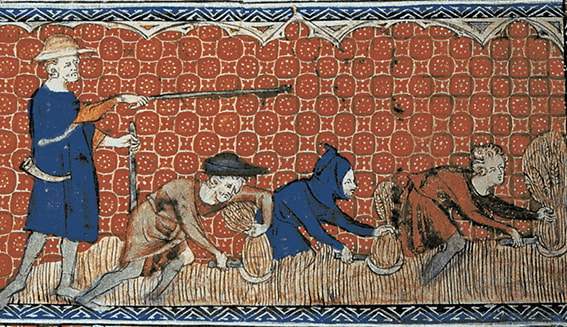IN MEDIEVAL times the lord of the manor ruled our days. Life was tough, but fair, as long as you grew his crops and tended his cows.
On a recent Saturday people gathered at a scattering of tables in Wonthaggi Library to consider our place in the digital economy and whether we had in fact gone full circle.
There was a time when banks were full of tellers, offices were full of clerks and newspapers were written by hard-drinking idealists. Factories were full of workers. Libraries were full of ssshhhhhh!
Back then, as a storeperson, I started each day with a pile of picking slips and a newspaper in my back pocket. At the end of the day I left a row of pallets and a half-done crossword for the cleaner.
Every day was the same, except for Fridays, when we downed pens early to sweep the floors until our wages were ready to be collected. Promptly at 3.30pm the queue formed to the left of the barred pay office window. The line moved so, so slowly. There was plenty of discussion about the weekend ahead. Once the envelope was in my hand I was gone till Monday morning. “See ya!”
Many of my co-workers worked Saturdays and sometimes Sundays. Penalty rates and overtime put their kids through high school and university.
If Monday came too quickly, or the boss was an arsehole, Friday afternoon was an opportunity to search through the cards at the Commonwealth Employment Service. It was either full time employment or the beach back then. Your choice.
As wages and conditions improved, the counter reaction was continuous improvement – the quest to reduce the number of employees. Computers and digitisation accelerated
that trend.
This was evident in the library that Saturday. Banks of computers are there, alongside the books and magazines. Self-check-outs beep and the librarians are as busy as ever, though these days you can talk without being shushed.
Beyond that sanctuary, life’s a bit crueller than it was in the 70s.
Most of us are surplus to requirements. Most bank tellers have been replaced by ATMs, and clerks have been superseded by spreadsheets. Impoverished journos starve on principle. The factories are in China.
The CES has been privatised into Job Network service providers. Centrelink is all about on-line compliance, with robo-debt fresh in our minds.
So much of higher education is now digital that university buildings are almost redundant. Missed tutorials can be accessed on-line. Rather than read all those papers, keyword searches can be used to mark the content.
Workers have flexibility – they can do as many jobs as they can cram into a day. Online platforms such as Airtasker enable unemployed people to bid against one another for short-term casual jobs.
These days casual might mean an hour. Employment is more tenuous but employers are saving money. Which they pass on to the consumer.
What work there is is tenuous; the digital employment market doesn’t provide continuity. But if you have no money in the bank and your purse is empty, can you afford to argue about that next task, no matter how short the shift or bizarre the job?
Banks won't lend money if there isn't a full-time job to fund the repayments. Insecure work leads to insecure housing. The founder of Airtasker has decreed that the banks need to change their policies.
The upside is cheapness. In the city, Deliveroo is so cheap it doesn’t make sense to go out.
If you have a task that needs to be done, list it on Airtasker and wait for the lowest bid.
In England Uber drivers are sleeping in their cars so they don’t miss a job, but the fares are cheaper.
Our group discussion covered these aspects and more. One thing we discussed in detail was the effect of decreased social contact, the value of that lost interaction and how to replace it.
I never realised how much we learned from those people behind us in the queues.
The Wonthaggi ethics discussion group meets fortnightly at the Wonthaggi Library. Next meeting: Saturday June 30, 2pm. All welcome.
